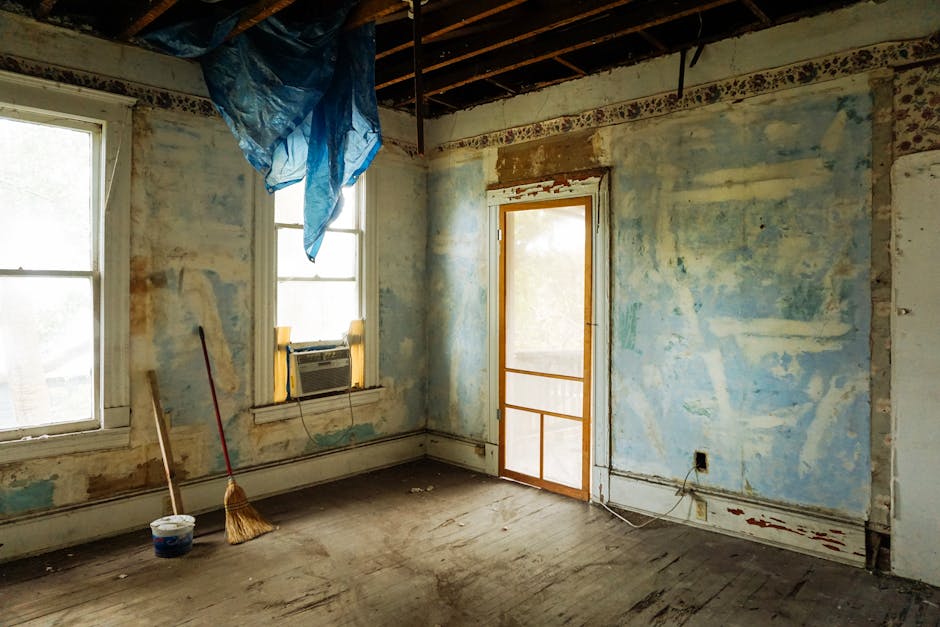Step-by-step checklist for first-time home renovators
So, you’re thinking about shaking things up around the house? Maybe a kitchen remodel, perhaps new bathroom fixtures, or just a fresh coat of paint throughout. This can feel big. You need a plan, and a detailed one at that, if you intend to make it out the other end with both your sanity and bank balance intact. The following points will help you avoid some of the most common pitfals, from unexpected costs to timeline blowouts, and help you see your dreams made real.
Initial Planning: Setting the Stage for Success
First, take a long, hard look around. What absolutely must change? What would be nice, if budget allows? Prioritizing these desires is key. Make a list. Add things. Cut stuff. Repeat. Think about how you actually use each space. Are there bottlenecks? Inefficiencies? List what must go. Also keep in mind how the changes you envision will affect the value of your home. While it's great to customize for your personal style, avoid major changes that might make it difficult to sell down the line.
Consider the scale of the project. A minor bathroom refresh is vastly different from gutting the whole thing and moving plumbing. Understand what you're getting in to! Is DIY an option, or are contractors essential? Be brutally honest about your skills. Many a project has floundered due to overconfidence.
- Outline all the projects you want completed.
- Consider current homeowner's insurance policy and if that needs changed before, during, and after renovations.
- Think about selling the house in the future and if all renovations will increase value to buyers.
Budgeting: Numbers Don’t Lie
Ah, the B-word. Nobody likes it, but it's crucial. Get real estimates from multiple contractors for each aspect of the job, dont just grab the first quote you see. Factor in a hefty contingency – at least 15-20% – for the inevitable surprises. Trust me, there will be surprises! Unexpected electrical issues, asbestos findings, or the sudden discovery of termites – these things happen. And they cost money. Also research material costs thoroughly. Prices fluctuate, and what looks affordable today might be triple the price tomorrow. Look at salvage yards and repurpose materials as this can save huge money. Don't forget permits too.
Speaking of budgets, consider phasing your renovation. Doing the kitchen one year and the bathrooms the next can ease the financial burden. This also lets you learn from any mistakes made in the first phase. Also consider funding. Will you take out a home equity loan, use savings, or refinance? Each option has its own pros and cons.
Design and Aesthetics: Making it Yours
Now for the fun part! Start gathering inspiration. Browse magazines, social media, and websites dedicated to interior design. Create a mood board to visualize your vision. But remember, "inspiration" doesn't mean blindly copying. Adapt ideas to fit your space and personal style.
Think about the flow of your home. How do different spaces connect? Will your renovation disrupt that flow? Consider lighting. A well-lit space feels larger and more inviting. Experiment with different types of lighting – ambient, task, and accent. And don't underestimate the power of paint. Color can dramatically alter the feel of a room, and its one of the cheapest upgrades you can make.
Contractor Selection: The Right Team Makes All the Difference
This is a biggie. Don't just hire the cheapest contractor. Do your homework. Check references, read online reviews, and verify licenses and insurance. Get everything in writing – a detailed scope of work, payment schedule, and estimated timeline. Make sure the contract includes clauses for dispute resolution and change orders.
Meet with potential contractors in person. Do they listen to your ideas? Do they communicate clearly? Do you feel comfortable working with them? This is a partnership, so choose someone you trust. Dont let just anyone into your home, especially if you live alone!
Permits and Inspections: Playing by the Rules
Don't skip this step! Pulling the necessary permits is essential, even for seemingly minor renovations. It ensures your project meets local building codes and safety standards. Failing to do so can result in fines, delays, and even the need to undo work.
Research local building codes. These rules are set to protect homeowners. They are not always clearly written out for easy to understand reading.
Inspections are another critical part of the process. They ensure the work is being done correctly and safely. Be prepared for unexpected issues to be flagged during these inspections. They might delay the project, but they're necessary.
Demolition and Construction: Prepare for Disruption
Demolition is messy. Really messy. Dust will get everywhere, no matter how careful you are. Cover furniture, seal off rooms, and consider investing in a good air purifier. And be prepared for noise. Jackhammers and power saws are not conducive to peaceful living.
During construction, maintain regular communication with your contractor. Address any concerns promptly. Take photos and videos of the progress. This can be helpful for insurance purposes and for tracking any potential issues. And most importantly, be patient. Renovations take time, and delays are inevitable.
Material Selection: Quality Matters
Choosing the right materials is crucial for both aesthetics and durability. Don't skimp on quality. Cheaper materials might save you money upfront, but they'll likely cost you more in the long run. Think about longevity, maintenance, and sustainability.
Consider the style of your home. Do you want to maintain a consistent look, or are you open to blending different styles? Pay attention to details like hardware, fixtures, and finishes. These small touches can make a big difference.
Contingency Planning: Expect the Unexpected
Remember that 15-20% contingency? This is where it comes in handy. Unforeseen problems will arise. A pipe might burst, an electrical wire might be faulty, or you might simply change your mind about something halfway through.
Having a contingency fund allows you to address these issues without derailing the entire project. It also provides peace of mind. Knowing you're prepared for the unexpected can make the renovation process much less stressful.
Final Touches and Cleanup: The Home Stretch
As the renovation nears completion, pay attention to the final details. Inspect the work carefully. Are there any imperfections? Any areas that need to be touched up? Create a punch list of items to be addressed by the contractor.
Cleanup is just as important as the renovation itself. Remove all debris, dust, and construction materials. Wash windows, vacuum carpets, and polish surfaces. The goal is to create a clean, inviting space that you can enjoy for years to come.
Post-Renovation: Enjoying the Fruits of Your Labor
Congratulations! You've survived your first home renovation! Now its time to sit back and enjoy the fruits of your labor. Arrange furniture, decorate the space, and invite friends and family over to admire your handiwork.
Take some time to reflect on the process. What did you learn? What would you do differently next time? Renovations can be stressful, but they can also be incredibly rewarding. By planning carefully, staying organized, and managing your budget wisely, you can create a home that you love.
Understanding Costly Mistakes: Common Pitfalls
Rushing decisions is a big one. Dont just pick the first tile you see without shopping around and considering alternatives. Improper waterproofing in bathrooms is a frequent mistake and can lead to costly repairs down the line. Skimping on electrical work is dangerous and can create hazards. Poor ventilation in kitchens and bathrooms can lead to mold and mildew problems. Not considering the impact on your neighbors can strain relations.
Ignoring building codes can lead to fines. Failing to get proper permits causes legal issues. Cutting corners to save money will usually cost you more in the long run. Poor project management can cause delays and cost overruns. Not checking contractor references can lead to hiring incompetent or unreliable workers.
Navigating the Insurance Maze
Your homeowners insurance policy might need adjustments before, during, and after renovations. Notify your insurance provider of any major work being done. Failure to do so could lead to denied claims if something goes wrong. You might need additional coverage for specific risks, such as theft or vandalism. Document everything with photos and videos to support any potential claims.
Keep copies of all contracts, permits, and invoices in case of an insurance issue. Understand the policy deductibles and coverage limits. Consider purchasing an umbrella policy for added liability protection. Review your policy annually to ensure it adequately covers your home and belongings.
Sustainability Considerations: Going Green
Choose energy-efficient appliances to reduce your carbon footprint and lower your utility bills. Use low-VOC paints and materials to improve indoor air quality. Consider installing solar panels to generate renewable energy. Insulate your home properly to reduce energy consumption.
Use recycled or reclaimed materials whenever possible. Install low-flow toilets and showerheads to conserve water. Plant native trees and shrubs to support local ecosystems. Compost food scraps and yard waste to reduce landfill waste. Support local businesses that prioritize sustainability.
Dealing with Unexpected Issues
Discovery of asbestos needs immediate professional remediation. Mold growth requires prompt and thorough removal. Structural damage might necessitate extensive repairs. Plumbing problems can cause water damage. Electrical issues can be hazardous and need immediate attention.
Pest infestations require professional extermination. Soil contamination might necessitate environmental remediation. Legal disputes with contractors need mediation or litigation. Unforeseen delays require flexibility and patience. Budget overruns require tough decisions and potential cutbacks.
Long-Term Maintenance and Care
Regularly inspect your home for signs of damage or wear and tear. Address minor repairs promptly to prevent them from becoming major problems. Clean gutters and downspouts to prevent water damage. Maintain your HVAC system to ensure optimal performance.
Inspect your roof periodically for leaks or damage. Check your plumbing for leaks or drips. Inspect electrical outlets and switches for signs of wear. Trim trees and shrubs to prevent them from damaging your home. Replace worn-out appliances and fixtures as needed.







